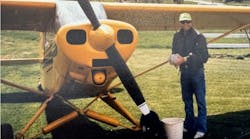Geneva, May 24, 2016: The International Business Aviation Council (IBAC), the global voice of business aviation since 1981, foresees important growth in participation in the International Standards for Business Aircraft Operations (IS-BAO) and Handling (IS-BAH). Coming international SMS requirements and increasingly tight regulatory resources mean that both globally recognized codes of best practice will become even more important to the business aviation community.
Established in 2001, IS-BAO has quickly grown to be the recognized independent standard for business aviation professionalism and excellence with the SMS concept at its core. More than 720 operators on six continents currently conform to the Standard, which incorporates the relevant standards and recommended practices set out by the International Civil Aviation Organization. Several regulatory authorities regard IS-BAO registration as a means of compliance with their own requirements. Most recently, Mexico named IS-BAO as a means of compliance for its business aviation community of about 300 operators.
In 2014, IBAC, in partnership with the National Air Transportation Association (NATA), launched the IS-BAH, modeled on the successful IS-BAO Program. The business aviation ground-handling community welcomed the introduction of the SMS concept into ground operations, a first in the global ground-handling sector. IBAC expects at least 25 registered facilities on X continents by the end of 2016, with many more coming in 2017.
“The International Standards Programmes were developed for the industry by the industry,” said Kurt Edwards, Director General. “Business aviation’s leadership in demonstrating its professionalism and commitment to safety through IS-BAO and IS-BAH is increasingly recognized by ICAO, regulatory authorities, and our clients. The Programmes’ value to operators and handlers is obvious.”
EBACE participants are invited to visit the IBAC stand (no. B031) to learn more about IS-BAO, IS-BAH, and how they can help further develop safety, efficiency, and quality for your organization.
About IBAC:
The International Business Aviation Council is a federation of 14 national and regional business aviation associations from around the world, with permanent Observer Status with ICAO. IBAC manages the
IS-BAO and IS-BAH safety standards.


